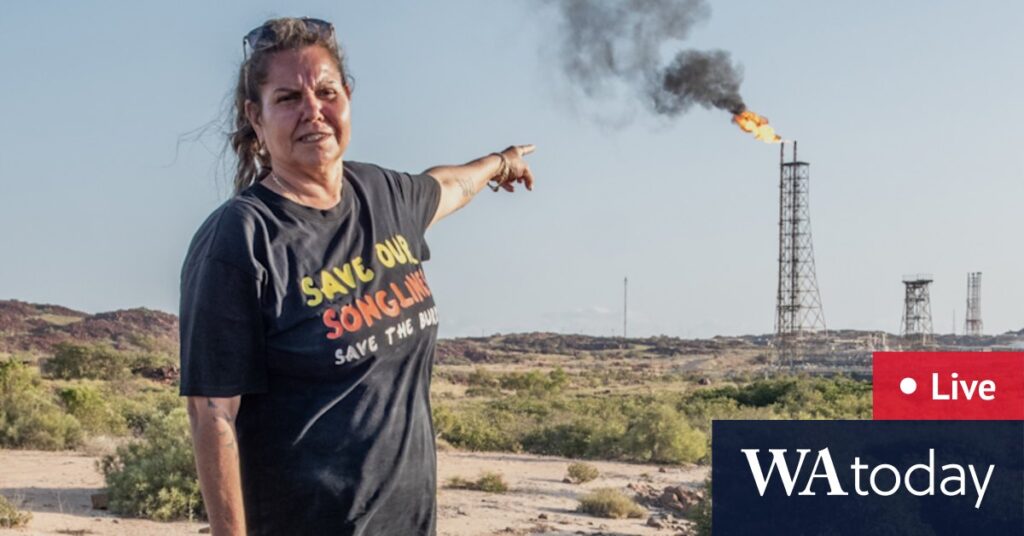
The Australian Conservation Foundation (ACF) has initiated a legal challenge in the Federal Court against Environment Minister Murray Watt’s decision to approve the extension of Woodside’s North West Shelf project until 2070. The case, brought before the court in Melbourne, claims that the minister failed to adequately consider the environmental and climate impacts of the project, which is projected to emit over 4 billion tonnes of carbon emissions into the atmosphere.
Speaking outside the Federal Court, ACF General Counsel Adam Beeson criticized the approval, stating, “This project is the centrepiece of the most polluting gas facility in the southern hemisphere.” He further emphasized the widespread public disapproval, noting that many Australians were shocked by the decision, particularly given the nation’s vulnerability to climate change-driven disasters such as heat waves, fires, and floods.
Legal Grounds and Environmental Concerns
The ACF’s legal argument centers on the claim that Minister Watt’s decision was unlawful due to a lack of consideration for the project’s climate change implications. The foundation asserts that the minister did not have a precise understanding of the type of gas to be processed at the facility. Additionally, the ACF argues that Watt’s reliance on the purported economic benefits of the proposed Browse gas project, which has not yet received approval, was erroneous.
The Woodside Energy-led North West Shelf venture, located in Western Australia, has been a significant player in the liquefied natural gas market since the 1980s. The project’s existing approvals were set to expire in 2030. However, the recent extension paves the way for Woodside to advance a $30 billion proposal to develop new offshore gas fields in the Browse Basin, identified as Australia’s largest untapped conventional gas resource.
Broader Implications for Environmental Policy
This legal challenge comes amid broader debates about Australia’s energy policy and its alignment with global climate goals. Environmental groups argue that approving such projects undermines efforts to reduce carbon emissions and transition to renewable energy sources. The case highlights the tension between economic development and environmental stewardship, a recurring theme in Australia’s resource-rich regions.
Meanwhile, the state of Western Australia is also addressing other pressing issues. Education Minister Sabine Winton announced a $7.4 million extension of the Regional Attraction and Retention Incentive, aimed at bolstering teacher numbers in remote areas. This initiative is part of a broader strategy to support regional education and ensure quality teaching staff in underserved areas.
State and National Economic Dynamics
In a related development, Premier Roger Cook has appealed to Prime Minister Anthony Albanese to exempt Western Australia from a reduction in the national skilled migrant intake. The state’s allocation under the migration program is set to decrease from 5000 to 3400 places next year. Cook argues that the state’s booming construction and defense sectors necessitate a steady influx of skilled workers.
Cook’s plea underscores the economic pressures facing Western Australia, which boasts the strongest economy in the nation. The premier emphasized the state’s ambition to host the largest shipbuilding and maintenance hub in the southern hemisphere, a goal that requires substantial workforce support.
Consumer Protection and Corporate Accountability
On another front, Energy Minister Amber-Jade Sanderson has criticized Synergy following revelations of overpayments affecting non-Centrelink customers. An audit uncovered $40 million in extra charges, affecting approximately 174,000 customers since 2009. The average overpayment was $230, with about half of the affected customers owed $10 or less.
Sanderson described the situation as “significant, disappointing, and unacceptable,” and called for swift action to rectify the issue. The incident has raised concerns about corporate accountability and the effectiveness of billing systems within government utilities.
Incidents and Public Safety
In other news, a car accident in Dalkeith saw a vehicle crash into a tree, resulting in significant damage but fortunately no serious injuries to the driver. WA Police are investigating the incident and have appealed for public assistance.
Additionally, a tragic incident in Pinjarra involved the stabbing of two pet dogs by a stranger, leading to the death of one of the animals. The attack, which occurred in an off-leash park, has prompted a police investigation, highlighting concerns about public safety and animal welfare.
As these stories unfold, they reflect the diverse challenges and developments shaping Western Australia, from environmental and economic issues to consumer rights and community safety.







